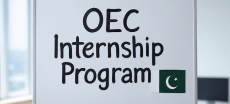War Severely Impacts Mental and Physical Health, Says Medical Research
Extensive medical research confirms that war and armed conflicts not only destroy critical infrastructure like hospitals and clinics but also gravely impact mental and emotional well-being, leaving people in a state of chronic fear and trauma.
According to a recent study published in the prestigious medical journal ‘Nature’, individuals living in conflict-ridden regions suffer from a range of serious health issues, including:
Read More: 5 Simple Habits to Boost Your Mental Health
- Depression and anxiety
- Insomnia
- Heart palpitations
- Nutritional deficiencies
These conditions are driven by the constant uncertainty and threat to life, disrupting both physical and emotional stability.
PTSD and Emotional Trauma in War Zones
Post-Traumatic Stress Disorder (PTSD) is a common diagnosis among war survivors, particularly those who have witnessed violence, injury, or the death of loved ones. This emotional trauma leaves long-lasting scars, often making it difficult for individuals to recover mentally.
Health experts emphasize that the psychological effects of war are far-reaching. Continuous exposure to violence and the loss of security fuels increased depression, existential anxiety, and a persistent sense of dread.
Deprivation of Basic Needs Intensifies Mental Health Crisis
According to healthcare professionals, the destruction of vital services—medical care, food supplies, and educational institutions—exacerbates the emotional toll on affected populations. The lack of these essential services makes people more vulnerable to diseases and emotional breakdowns.
Experts Offer Mental Health Guidance in Conflict Settings
To help cope with the emotional burden of war, health experts recommend:
- Avoiding unnecessary exposure to distressing videos or unverified online content
- Limiting time spent on social media during crises
- Focusing on personal and family safety
- Maintaining a healthy diet and lifestyle
- Recognizing your role in protecting your mental health, rather than trying to intervene in uncontrollable external events
In summary, war affects more than just the battlefield—it takes a deep toll on the mental health and well-being of civilians. Prioritizing emotional resilience, family care, and basic health during such times is essential for survival and recovery.











